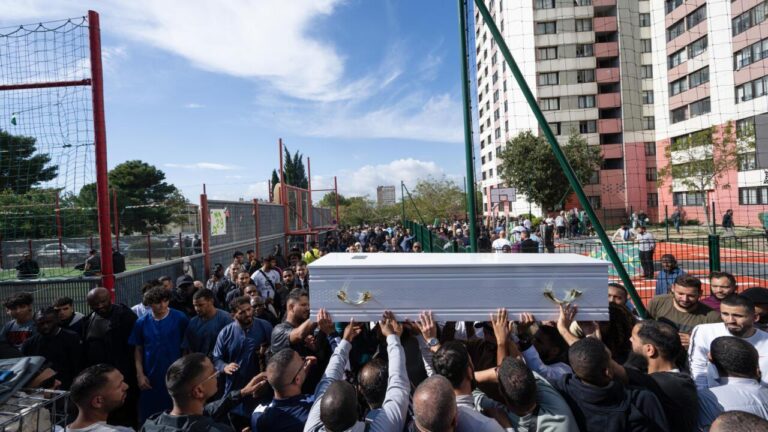Marseille, France – The southern port city of Marseille, long plagued by drug-related violence, is facing a disturbing new trend: the rise of teenage hitmen fueled by radical criminal networks. Recent reports from France 24 reveal how these youths, often drawn from marginalized neighborhoods, are becoming increasingly involved in brutal turf wars that have escalated the city’s drug violence to unprecedented levels. As law enforcement struggles to contain the chaos, concerns are mounting over the social and economic forces driving these young offenders deeper into a cycle of violence and criminal radicalization.
Rising Tide of Youth Violence in Marseille’s Drug Wars
Marseille’s notorious drug conflicts have entered a perilous new phase, marked by the disturbing involvement of teenagers as hired assassins. These youth, many from marginalized neighborhoods, are increasingly being lured into violent roles by the allure of fast money and social acceptance within criminal networks. Local authorities report a sharp rise in gang-related shootings, with victims and perpetrators often barely out of adolescence. This generational shift has intensified the brutality of the drug wars, as the young hitmen bring both fearlessness and desperation to the streets, complicating law enforcement efforts to restore order.
Key factors driving this trend include:
- Economic disenfranchisement and limited opportunities for youth in urban suburbs
- The grooming strategies employed by adult crime lords targeting teenagers
- The proliferation of social media, which sometimes glamorizes gang lifestyle and violence
| Year | Youth-Related Shootings | Arrests of Minors |
|---|---|---|
| 2021 | 58 | 34 |
| 2022 | 76 | 47 |
| 2023 | 92 | 63 |
With escalating violence and heightened recruitment of teenagers, Marseille’s drug wars threaten to erode community safety and deepen social fragmentation. Experts stress that tackling this crisis requires integrated social programs, enhanced policing strategies, and swift judicial responses to prevent these young lives from being irreversibly trapped in cycles of crime.
The Role of Radicalization in Grooming Teen Hitmen
The disturbing escalation in Marseille’s drug-related violence is increasingly linked to a disturbing pattern of radicalization among teenagers. Young recruits, often from marginalized communities, are systematically groomed into becoming hitmen through a mixture of coercion, ideological manipulation, and promises of quick financial gain. This process exploits their vulnerabilities — including economic hardship and a search for identity — transforming impressionable youths into hardened enforcers who execute violent orders with alarming detachment. Criminal gangs exert control by embedding these teens within tightly knit networks, where loyalty is demanded and dissent brutally punished.
Key factors facilitating this grooming include:
- Social isolation and lack of access to positive role models
- Exposure to glorified images of gang culture on social media
- Systematic desensitization to violence through repeated involvement in petty crimes
- Manipulative mentoring by older gang members promising power and respect
| Age Range | Common Recruitment Method | Typical Role |
|---|---|---|
| 13-15 | Peer influence and neighborhood pressure | Lookouts, couriers |
| 16-18 | Mentorship by gang leaders | Active shooters, enforcers |
Community Impact and the Spiral of Urban Crime
In Marseille, the ripple effects of escalating drug-related violence reach far beyond the immediate casualties and gang conflicts, embedding themselves deeply into the social fabric of vulnerable neighborhoods. The recruitment of increasingly younger hitmen amplifies the trauma experienced by communities already battered by poverty and neglect. Families are trapped in a cycle where fear becomes a constant companion, schools face disruptions, and local economic opportunities dwindle, perpetuating conditions conducive to criminal recruitment.
Key consequences of this spiral include:
- Heightened insecurity limiting public life and community cohesion
- Normalization of violent behavior among youth—reducing prospects for peaceful conflict resolution
- Deterioration of trust between residents and law enforcement agencies
- Strain on social services unable to adequately support traumatized populations
| Impact Area | Short-term Effect | Long-term Consequence |
|---|---|---|
| Education | Increased dropout rates | Reduced employability and persistent poverty |
| Public Safety | Rise in violent incidents | Enduring community distrust and isolation |
| Family Dynamics | Breakdown of parental authority | Generational cycles of criminal involvement |
Strategies for Intervention and Prevention in Vulnerable Neighborhoods
Addressing the escalating drug-related violence in Marseille requires a multifaceted approach centered on both intervention and prevention. Strengthening community policing efforts can rebuild trust between residents and law enforcement, enabling earlier identification of at-risk youths before they spiral into criminal activities. Additionally, expanding access to educational programs and vocational training in vulnerable neighborhoods offers tangible alternatives to the allure of gang affiliation. Such initiatives must focus on building resilience through mentorship and empowerment, disrupting the cycle of poverty and disenfranchisement that often fuels recruitment by criminal networks.
Prevention strategies should also incorporate support systems that reach beyond immediate crime reduction, fostering long-term social stability. Investing in mental health resources, family counseling, and extracurricular activities ensures that young people have constructive outlets and the necessary guidance during critical developmental stages. Below is a simplified overview of key preventative measures that have shown promise:
| Strategy | Purpose | Expected Outcome |
|---|---|---|
| Community Policing | Enhance trust with law enforcement | Better intelligence, reduced violence |
| Educational & Vocational Programs | Provide alternatives to crime | Improved employment rates |
| Mental Health Services | Support at-risk youth emotionally | Lower recidivism |
| Family & Community Support | Strengthen social networks | Resilience against gang recruitment |
To Wrap It Up
As Marseille grapples with the rising tide of youth involvement in drug-related violence, the emergence of teenage hitmen signals a troubling escalation in the city’s long-standing battle with organized crime. Authorities face mounting pressure to address the social and economic conditions that leave vulnerable adolescents susceptible to radicalization by criminal networks. Without urgent intervention, experts warn that this new generation of violent actors could entrench a cycle of bloodshed, further destabilizing neighborhoods and challenging France’s broader efforts to restore law and order in its urban centers.




